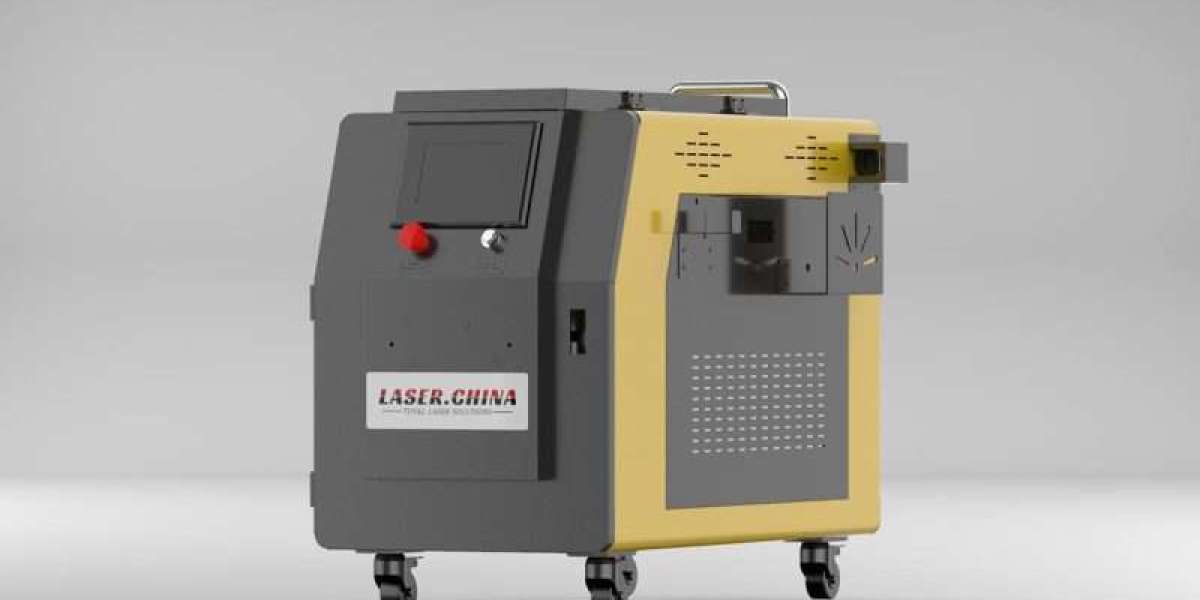In the fast-paced world of industrial manufacturing and maintenance, efficiency is key. Every minute saved and every resource conserved can translate into significant cost savings and productivity gains. That's where industrial laser cleaners come into play, revolutionizing the way industries approach cleaning and surface preparation tasks.
In this comprehensive guide, we'll explore the ins and outs of industrial laser cleaners, from their cutting-edge technology to their diverse applications and undeniable benefits.
What are Industrial Laser Cleaners?
Industrial laser cleaners are advanced tools that harness the power of laser technology to remove contaminants, coatings, and residues from various surfaces with unparalleled precision and efficiency. Unlike traditional cleaning methods such as abrasion or chemical treatments, laser cleaners offer a non-contact, environmentally friendly solution that minimizes waste and maximizes productivity.
The Advantages of Industrial Laser Cleaners
- Precision Cleaning: With precise control over parameters such as power, pulse duration, and spot size, industrial laser cleaners can target contaminants with pinpoint accuracy, leaving behind a pristine surface finish.
- Versatility: From rust and paint removal to degreasing and oxide layer removal, industrial laser cleaners can tackle a wide range of cleaning and surface preparation tasks across various industries.
- Non-Destructive: Unlike abrasive methods that can damage sensitive materials or substrates, laser cleaning is a non-destructive process that preserves the integrity of the underlying surface.
- Environmentally Friendly: By eliminating the need for harsh chemicals or abrasive media, laser cleaning reduces hazardous waste generation and minimizes environmental impact, making it a sustainable choice for eco-conscious industries.
Practical Applications
- Manufacturing: Industrial laser cleaners are indispensable for removing contaminants and preparing surfaces prior to welding, bonding, or coating processes, ensuring optimal adhesion and product quality.
- Aerospace and Defense: From aircraft maintenance to missile refurbishment, laser cleaners are used to remove coatings, contaminants, and corrosion from critical components without causing damage.
- Automotive Industry: Whether it's degreasing engine components or removing paint and rust from vehicle bodies, industrial laser cleaners streamline cleaning processes and enhance production efficiency.
- Historical Restoration: Museums and conservationists utilize laser cleaners to delicately remove soot, grime, and coatings from historical artifacts and architectural structures, preserving their cultural heritage for future generations.
Tips for Maximizing Efficiency
- Optimize Parameters: Adjust laser settings according to the specific cleaning task and material properties to achieve the best results while minimizing processing time.
- Proper Ventilation: Ensure adequate ventilation in the work area to dissipate any fumes or particles generated during the cleaning process.
- Regular Maintenance: Routinely inspect and maintain the laser cleaning system to ensure optimal performance and longevity.
Conclusion
In conclusion, industrial laser cleaners represent a game-changing technology that offers unparalleled efficiency, versatility, and environmental sustainability in the realm of surface cleaning and preparation. Whether you're a manufacturer, maintenance professional, or preservationist, integrating laser cleaning into your workflow can unlock new levels of productivity and precision.
So why settle for outdated cleaning methods when you can embrace the future of industrial cleaning with laser technology? Invest in an industrial laser cleaner today and experience the difference for yourself!



